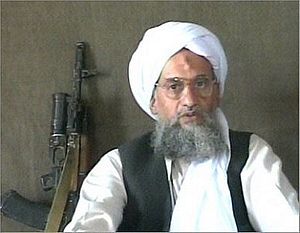Al-Qaeda central appears to have joined the Islamic State in calling for jihad against China over its alleged occupation of Xinjiang Uyghur Autonomous Region.
This week, al-Sahab media organization, al-Qaeda’s propaganda arm, released the first issue of its new English-language magazine Resurgence. The magazine has a strong focus on the Asia-Pacific in general, with feature articles on both India and Bangladesh, as well as others on Afghanistan and Pakistan.
However, the first issue also contains an article entitled “10 Facts About East Turkistan,” which refers to the name given to Xinjiang by those who favor independence from China. The ten facts seek to cast Xinjiang as a longtime independent state that has only recently been brutally colonized by Han Chinese, who are determined to obliterate its Islamic heritage.
“In the last 1,000 years of its Islamic history,” the article says, Xinjiang “has remained independent for 763 years, while 237 years have been spent under Chinese occupation at various intervals.”
This occupation has been costly, the article argues, alleging that: “In 1949, 93 percent of the population of East Turkistan was Uyghur, while 7 percent was Chinese. Today, as a result of six decades of forced displacement of the native population and the settlement of Han Chinese in their place, almost 45 percent of the population of East Turkistan is Chinese.”
The article goes on to claim that teaching the Quran in Xinjiang is punishable by up to ten years in prison, and that Muslim women caught wearing the hijab can be fined more than five times the average annual income of the area. Al-Qaeda also claims that following its takeover of the mainland in 1949, the Chinese Communist Party murdered some 4.5 million Muslims in Xinjiang. The group further claims that China has conducted no less than 35 nuclear weapon tests in Xinjiang, and the radioactive fallout from these are estimated to have killed 200,000 Muslims. In 1998 alone, the article adds, 20,000 babies were born deformed in Xinjiang as a result of these nuclear tests.
Although “10 Facts About East Turkistan” stops shorting of calling for jihad against China, the point is more directly articulated elsewhere in the first issue of Resurgence. For example, one article says that the “the victory of the Ummah” will be a “deathblow” and a “bitter defeat… for America, Iran, Russia, China and all those who have fought this war by proxy against Muslims.” In a particularly troubling article for China and other state actors, al-Qaeda calls on its followers to try to disrupt shipping in the Strait of Hormuz and Strait of Malacca, noting the waterways’ centrality for China and other Asian economies in particular.
Al-Qaeda central’s sudden focus on China follows closely on the heels of the Islamic State also condemning Beijing for its handling of its Uyghur Muslim population. Back in July, IS leader Abu Bakr Al-Baghdadi gave a speech in which he argued “Muslim rights are forcibly seized in China, India, Palestine” and many other countries around the world. Later, IS released a map that outlined the borders of its envisioned Caliphate. Notably, Xinjiang province was included in the Caliphate.
Chinese officials and local authorities have also noted an uptick in the number of Chinese nationals traveling to the Middle East to fight or train alongside militant groups in the region. The last year has also seen a sharp uptick in the frequency and sophistication of domestic terrorist attacks inside China, which the government blames on disgruntled Uyghurs.
Resurgence’s focus on China also follows al-Qaeda leader Ayman al-Zawahiri recently establishing a South Asia branch to try and extend the group’s operations to the Indian continent. The move was largely seen as an attempt to compete with the Islamic State for the leadership of the jihadist world.
The same competition almost certainly motivated al-Qaeda central to publish the English-language magazine as well. The al-Sahab media organization has been active since around 2001 — although its activities have rapidly diminished over the last few years — but this is the first time that it or al-Qaeda central has published an English-language magazine. However, the terrorist group’s Yemen-based branch, al-Qaeda in the Arabian Peninsula (AQAP), has long published an English language magazine called Inspire, which Resurgence is modeled on.
Inspire was best known for trying to motivate potential lone wolf terrorists in Western countries in the United States and Europe. Resurgence at times seems to try to emulate this approach, only with an eye toward populations mostly outside the Western world.
That al-Qaeda is attempting to use an English-language publication to motivate would-be jihadists in places like Xinjiang displays a remarkable degree of desperation, incompetence or both, none of which bodes well for the group’s longevity. Terrorist groups have a history of failing under the leadership of Ayman al-Zawahiri, and al-Qaeda central increasingly appears destined to suffer the same fate.

































